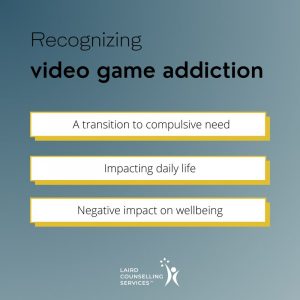 Let’s talk about video game addiction:
Let’s talk about video game addiction:
🎮 The Pleasure-Driven Motivation:
At its core, video gaming often begins as a source of pleasure and enjoyment. Whether it’s the thrill of exploration, the satisfaction of completing challenges, or the camaraderie in online multiplayer settings, these experiences contribute positively to individuals’ lives.
🔄 Transitioning to Compulsive Need:
However, the journey from pleasure to potential addiction is marked by a subtle shift. It’s crucial to notice when the initial motivations transform into a compulsive need—a point where the desire to play overrides other essential aspects of life. This shift becomes particularly evident when activities like neglecting schoolwork or abandoning responsibilities take center stage.
🚸 Recognizing Adverse Consequences:
The key to understanding this transition lies in recognizing the negative consequences that accompany compulsive gaming behavior. As the immersive world of video games captivates individuals, it may lead to a neglect of academic commitments, strained interpersonal relationships, and a general decline in overall well-being.
⚖️ Striking the Balance:
Striking a balance between positive engagement and potential pitfalls involves fostering a mindful approach to gaming. It’s about being aware of the time spent, the impact on daily responsibilities, and the overall well-being of the individual. This awareness empowers individuals to enjoy the benefits of gaming without succumbing to its potential drawbacks.
🤝 Encouraging Responsible Gaming:
Promoting responsible gaming habits is a shared responsibility. Parents, educators, and gamers themselves can play pivotal roles in creating a healthy gaming environment. Establishing open communication, setting time limits, and encouraging diverse activities beyond the screen contribute to a well-rounded and positive gaming experience. Working with a therapist can provide valuable insights and strategies to cultivate a mindful approach to video gaming, fostering a balanced approach to gaming.
